“The current controversy surrounding
testosterone treatment is causing confusion
amongst women and healthcare professionals alike”.1
Umbrella
What may the Testosterone Therapy for Women Umbrella include?
Depending on the Source (DotS) this Umbrella may include:
- Androgen
- Male Androgen Hormone
- Male Hormone
- Male Sex Hormone
- Testosterone
- Testosterone Therapy/Treatment
Testosterone
What is testosterone?
DotS the definition of testosterone may vary. The Australian Menopause Society’s (AMS) definition is:
“Testosterone is the male sex hormone found in smaller amounts in women. In women, increased levels of testosterone can lead to acne and hirsutism. Low levels of testosterone in women may contribute to loss of libido”.2
Female Hormone
Is testosterone a female hormone?
On page one in Testosterone Replacement In Menopause: Is Testosterone A Female Hormone? the British Menopause Society (BMS) elaborate on:
“Yes – premenopausal women produce both testosterone and estrogen physiologically. Androgens, including testosterone, are essential for development and maintenance of female sexual anatomy and physiology, and modulation of sexual behaviour”.3
Libido
What is libido?
DotS the definition of libido may vary. In What Can Affect Your Sex Life? Sexual Desire (Libido) the (Australian) Jean Hailes for Women’s Health (JH) definition is:
“Sexual desire or sex drive is your level of interest in sexual activity. It’s normal for your sexual desire to go up and down at different times and for different reasons”.4
Testosterone Therapy
Is testosterone therapy recommended for low libido?
In Looking After Yourself During Menopause: Sex and Relationships – Managing Low Libido: Testosterone Therapy the JH elaborate on:
 “The area of wellbeing and libido is very complex, and research tells us these are likely to be influenced by psychological factors more than testosterone. But testosterone therapy may be a suitable treatment for postmenopausal women who feel distressed by their loss of sexual desire. This condition is known as hypoactive sexual desire disorder (HSDD)”.5
“The area of wellbeing and libido is very complex, and research tells us these are likely to be influenced by psychological factors more than testosterone. But testosterone therapy may be a suitable treatment for postmenopausal women who feel distressed by their loss of sexual desire. This condition is known as hypoactive sexual desire disorder (HSDD)”.5HSDD
In women, what is Hypoactive Sexual Desire Disorder (HSDD)?
DotS the definition of HSDD may vary. In What Is Hypoactive Sexual Desire Disorder (HSDD) In Women? What Causes It? the International Society for Sexual Medicine’s definition is:
“Hypoactive sexual desire disorder (HSDD) is a troublesome condition in which women lose interest in sex. The Society for Women’s Health Research estimates that one in ten women have HSDD, making it one of the most common female sexual health complaints”.6
Postmenopause + HSDD
For postmenopausal women experiencing HSDD, may testosterone therapy be a suitable treatment?
On page one in Testosterone and the Menopause: Testosterone Replacement In Women, published July 2022, the European Menopause and Andropause Society note:
“HSDD after the menopause is the only evidence-based indication for testosterone in women”.7
In Looking After Yourself During Menopause: Sex and Relationships – Managing Low Libido: Testosterone Therapy the JH note:
 “Testosterone therapy is only recommended for women diagnosed with HSDD. There is no evidence to support using testosterone in premenopausal women for low libido or any other condition such as low mood or depression”.8
“Testosterone therapy is only recommended for women diagnosed with HSDD. There is no evidence to support using testosterone in premenopausal women for low libido or any other condition such as low mood or depression”.8
On page one in Testosterone for Women: Why Use Testosterone? the British Women’s Health Concern elaborate on:
“The current recommended reason is for persistent low sex drive (Hypoactive sexual desire disorder, HSDD) in women after all other possible factors, including taking adequate estrogen, have been addressed. Even with this indication, it does not help everyone”.9
In The 2023 Practitioner’s Toolkit for Managing Menopause: Management – MHT Formulations and Options: Testosterone published online 01 December 2023, the authors explain:
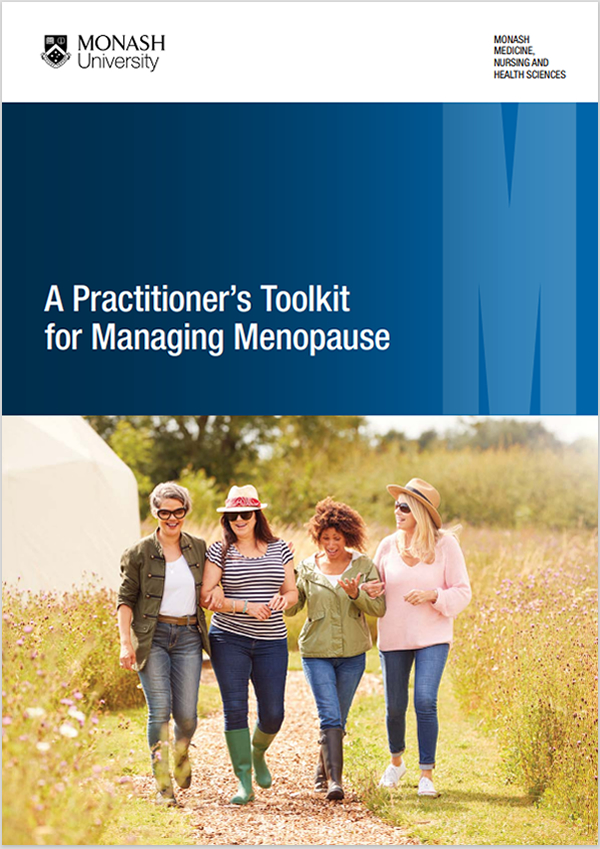 “Testosterone is not a standard component of MHT. The only evidence-based indication for testosterone therapy is for the treatment of postmenopausal women who experience loss of sexual desire that causes them to experience concern/distress. When prescribed for this indication, treatment should be transdermal and ideally with a preparation formulated for women. Alternatively, a modified dose of a regulatory-approved male testosterone therapy could be used. With both options, women should be monitored for evidence of clinical or biochemical androgen excess. Compounded testosterone formulations are not recommended due to lack of evidence of safety or efficacy. Detailed guidance regarding testosterone use in women can be found in the Global Consensus Position Statement for Testosterone use in Women”.10
“Testosterone is not a standard component of MHT. The only evidence-based indication for testosterone therapy is for the treatment of postmenopausal women who experience loss of sexual desire that causes them to experience concern/distress. When prescribed for this indication, treatment should be transdermal and ideally with a preparation formulated for women. Alternatively, a modified dose of a regulatory-approved male testosterone therapy could be used. With both options, women should be monitored for evidence of clinical or biochemical androgen excess. Compounded testosterone formulations are not recommended due to lack of evidence of safety or efficacy. Detailed guidance regarding testosterone use in women can be found in the Global Consensus Position Statement for Testosterone use in Women”.10Australia, 19 June 2023
Presently, is Australia the only country in the world with an approved testosterone formulation specifically for women?
In Advancing Menopause Care In Australia: Barriers and Opportunities: The Role of Testosterone, published online 19 June 2023, the authors elaborate on:
“Presently, Australia is the only country in the world with an approved testosterone formulation specifically for women. Its prescribing indication is in line with the evidence of efficacy of transdermal testosterone for the treatment of post‐menopausal women with low sexual desire associated with personal distress (hypoactive sexual desire disorder). Important caveats on the evidence are that…”.11
BMS Statement on Testosterone, 26 July 2024
What does the BMS Statement on Testosterone, 06 July 2024, elaborate on for the treatment of low libido?
The BMS Statement on Testosterone elaborates on:
Ongoing research may provide evidence for other indications for use of testosterone by women, and we all agree that more research is needed”.12
Low Mood and Depression
Is there a role for testosterone therapy for low mood or depression?
As noted above in Looking After Yourself: Sex and Relationships – Managing Low Libido: Testosterone Therapy the JH explain:
On page four in the Joint Position Statement By the British Menopause Society, Royal College of Obstetricians and Gynaecologists and Society for Endocrinology on Best Practice Recommendations for the Care of Women Experiencing the Menopause, first published online 10 June 2022, one of the recommendations is:
In Advancing Menopause Care In Australia: Barriers and Opportunities: The Role of Testosterone, published online 19 June 2023, the authors explain:
05 July 2024
So, does testosterone improve fatigue, wellbeing or cognition?
In Prescribing of Testosterone for Middle-Aged Women ‘Out of Control’, published 05 July 2024, includes:
Prof Susan Davis, head of the Monash University Women’s Health Research Programme in Melbourne Australia, and a past president of the Australasian Menopause Society and the International Menopause Society, disputes this suggestion.
She said: “The data clearly supports a trial of therapy in postmenopausal women with low sexual function that bothers them. But we have looked at the evidence inside and out, reviewed all the published literature, and published all of our own data. The evidence that testosterone will improve fatigue, wellbeing, cognition, or anything else you want to list, is just not there”.16
Health Care Provider
What if I am considering testosterone therapy?
If you are considering testosterone therapy, it may be in your best interest to choose to talk to your health care provider about this.
In Looking After Yourself During Menopause: Sex and Relationships – Managing Low Libido: Testosterone Therapy – How Is Testosterone Used? the JH note:
“If testosterone therapy is going to improve your libido, you will start to notice this after about four weeks. If there is no improvement after six months, you should stop testosterone treatment”.17
Health Topics A-Z
Where may I find Health Topics A-Z related to Testosterone Therapy for Women?
In Health Topics A-Z you may find:
Links
Where may I find Links related to Testosterone Therapy for Women?
Your Country may have Links similar to:
Links
This Links List to third party websites is neither comprehensive nor exhaustive. Inclusion on this Links List does not imply endorsement or recommendation. Non-inclusion on this Links List does not imply non-endorsement or non-recommendation. Third party websites are not under the control of Meno Martha International Menopause Directory. Third party websites may contain explicit medical images and/or sexual references. Please read Meno Martha International Menopause Directory’s Links Policy before proceeding to a Link. Please contact Webmaster if you experience a problem with a Link.New or Updated
- EMAS On-Demand Webinars: Testosterone Therapy In Women [2024]
- Professional Video and Podcast Series: 2025 Professional Videos and Podcasts – Hypoactive Sexual Desire Disorder HSDD—Open the Door To Discussion [March 2024]
- Talking Testosterone & Menopause With Prof. Susan Davis [August 2024]
- The Menopause Society Statement on Misinformation Surrounding Hormone Therapy [September 2024]
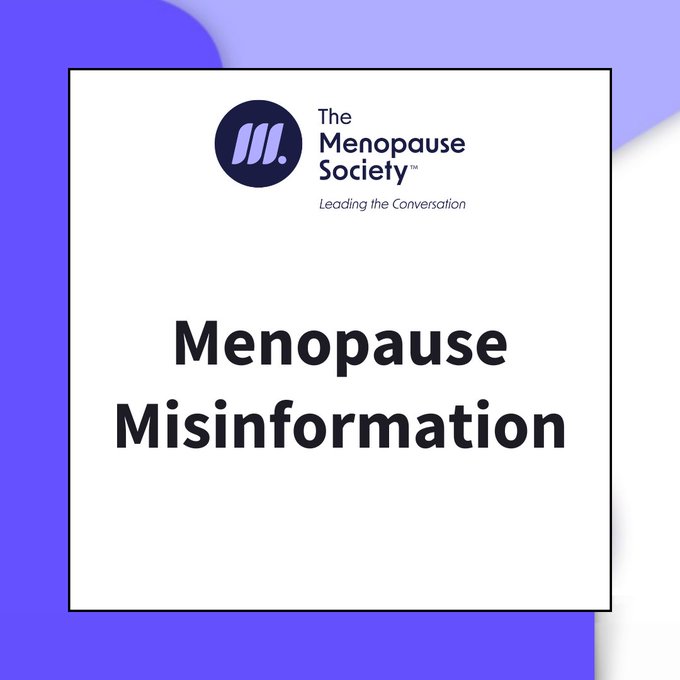
- Testosterone Q&A | Dr Louise Newson [October 2024]
- Videos & Podcasts: Videos – Menopause and Hormone Therapy: Current Perspectives and Controversies [18 October 2024]
- Advancing Menopause Care In Australia: Barriers and Opportunities – The Role of Testosterone Treatment
- Association Between Testosterone and Cognitive Performance In Postmenopausal Women: A Systematic Review of Observational Studies
- BMS Comment on Channel 4 Programme: Davina McCall: Sex, Myths and the Menopause [2022]
- BMS Statement on Testosterone [26 July 2024]
- BMS TV: Testosterone Explained
- Balance Between Excitement, Inhibition Key To Treat Hypoactive Sexual Desire Disorder
- Can You Have Systemic Testosterone on Its Own Without Oestrogen Therapy? [Video]
- Causes of Low Libido In Postmenopausal Women [Video] [2020]
- Consumer Video and Podcast Series: 2024 Consumer Videos and Podcasts – Preparing for Your Menopause Healthcare Visit
- Don’t Believe the Hype. Menopausal Women Don’t All Need To Check – or Increase – Their Testosterone Levels
- EMAS On-Demand Webinars: Testosterone Therapy In Women
- Effects of Testosterone Hormone on the Sexual Aspect of Postmenopausal Women: A Systematic Review
- Experts Answer Your Menopause Questions In New Video
- Find A Menopause Practitioner [United States and Other]
- Find An AMS Member [Australasian Menopause Society i.e. Australia and New Zealand]
- Find Your Nearest BMS Menopause Specialist [British Menopause Society]
- HRT Questions Answered
- How To Get Female Testosterone Therapy In Menopause [Video]
- How To Talk To Your Doctor About Menopause
- How To Talk To Your Doctor About Painful Sex
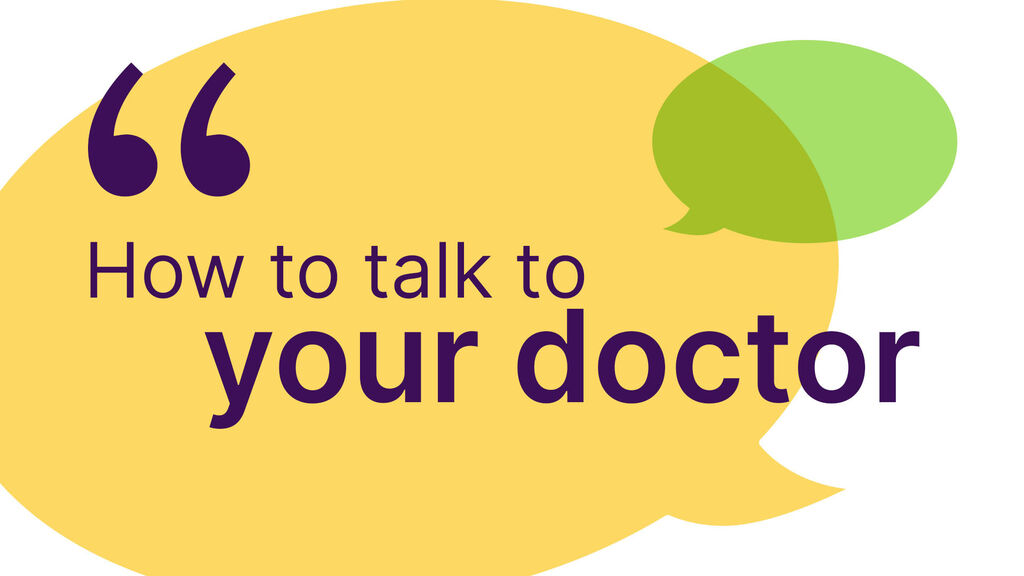
- International Society for Sexual Medicine: Sexual Health Topics
- International Society for the Study of Women’s Sexual Health Clinical Practice Guideline for the Use of Systemic Testosterone for Hypoactive Sexual Desire Disorder In Women
- International Society for the Study of Women’s Sexual Health: Find A Provider
- Joint Position Statement By the British Menopause Society, Royal College of Obstetricians and Gynaecologists and Society for Endocrinology on Best Practice Recommendations for the Care of Women Experiencing the Menopause
- Later Years (Around 50 Years and Over): Menopause and Post Menopause Health – Sexual Wellbeing, Intimacy and Menopause [+ Video: Menopause Is the End of Your Sex Life] [Other Languages and Formats]
- Later Years (Around 50 Years and Over): Menopause and Post Menopause Health – Supporting Someone Through the Menopause [+ Video: Men Don’t Need To Know About Menopause] [Other Languages and Formats]
- Let’s Talk About Perimenopause
- Libido and Testosterone Therapy – Podcast
- Looking After Yourself During Menopause: Managing Low Libido – Testosterone Therapy
- Low Sex Drive In Women
- Low Sex Drive In Women: Diagnosis & Treatment
- Low Testosterone Levels In Women Associated With Double the Risk of Cardiac Events
- Managing Your Symptoms
- Menopause
- Menopause
- Menopause Management Options
- Menopause Map: Downloadable Resources – My Personal Path Print Tools: Questions for Your Health Care Provider

- Menopause Map: Downloadable Resources – My Personal Path Print Tools: Symptom Tracker
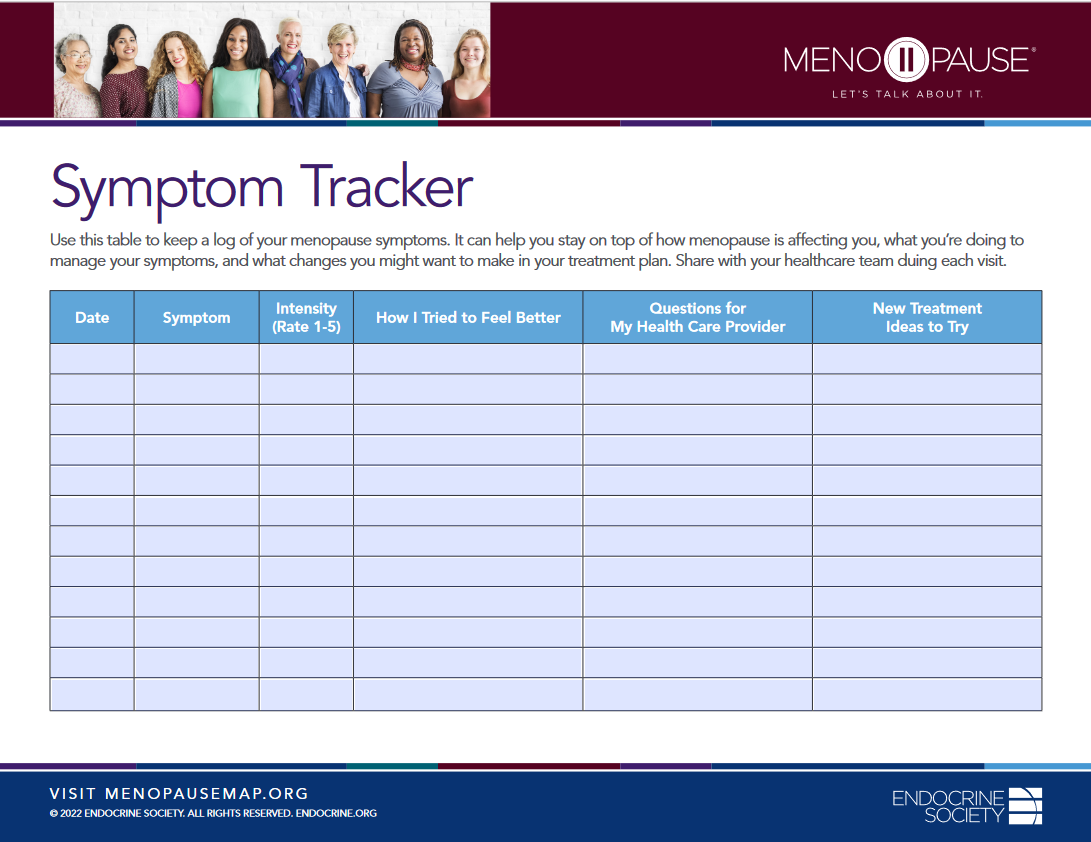
- Menopause Patient Information [Videos] 2. Talking To Your GP About Menopause
- Menopause Preparedness Toolkit Video Series: Common Conditions Associated With Menopause and Midlife
- Menopause Relief In the Spotlight Thanks To Monash University-Led Studies [Australia]
- Menopause Ruining Your Sex Life?
- Menopause Symptoms: Mayo Clinic Expert Outlines Hormone and Nonhormonal Therapies
- Menopause Treatments: What Works, What Doesn’t
- Menopause What Are the Symptoms?
- Menopause and Sexuality
- Menopause: Identification and Management [NICE Guideline Published: 12 November 2015 Last Updated: 07 November 2024]

- Menopause: Identification and Management: NICE Guideline [NG23] [07 November 2024]
- Menopause: Understanding the Changes and Finding Relief | Dr Susan Davis | The Proof Podcast EP 256
- NIHR Testosterone Trial [National Institute of Health Research, United Kingdom]
- National Center for Complementary and Integrative Health: Herbs At A Glance
- National Center for Complementary and Integrative Health: How Safe Is This Product or Practice?
- Navigating Menopause: Expert Insights and Solutions | Dr Susan Davis | The Proof Podcast EP 245
- Navigating Menopause Together: How Partners Can Help
- No Evidence Testosterone Helps Treat Pre-Menopausal Symptoms, An Expert Says
- Perimenopause
- Perimenopause and Menopause Checklist: Translated Checklists
- Perimenopause and Menopause Symptom Checklist

- Postmenopause
- Prescribing Testosterone and DHEA: The Role of Androgens In Women
- Prescribing of Testosterone for Middle-Aged Women ‘Out of Control’
- Professional Video and Podcast Series: 2025 Professional Videos and Podcasts – Hypoactive Sexual Desire Disorder HSDD—Open the Door To Discussion
- Sex and Sexual Health
- Sexual Health: In-Depth – Testosterone Therapy – Potential Benefits and Risks As You Age
- Symptoms of Low Testosterone In Women (and Reasons Why It Might Be Low)
- Talking Testosterone & Menopause With Prof. Susan Davis [Video]
- Testosterone | Dr Louise Newson
- Testosterone Explained – A British Menopause Society Video
- Testosterone Q&A | Dr Louise Newson [Video]
- Testosterone Replacement In Menopause
- Testosterone Sex & Libido With Sexual Health & BMS Accredited GP, Dr Angela Wright [Video]
- Testosterone Therapy In Females Is Not Associated With Increased Cardiovascular or Breast Cancer Risk: A Claims Database Analysis
- Testosterone Therapy In Women: Does It Boost Sex Drive?
- Testosterone Therapy for Hypoactive Sexual Desire Disorder (HSDD) [2021]
- Testosterone Use for Hypoactive Sexual Desire Disorder In Postmenopausal Women
- Testosterone and the Hormone Triangle, With Dr Mohit Khera | The Dr Louise Newson Podcast
- Testosterone and the Menopause
- Testosterone for Menopause: Why Women Face Difficulties Accessing Treatment
- Testosterone for Women
- The 2023 Practitioner’s Toolkit for Managing Menopause
- The Association Between Testosterone and Depression In Postmenopausal Women: A Systematic Review of Observational Studies
- The Clinical Management of Testosterone Replacement Therapy In Postmenopausal Women With Hypoactive Sexual Desire Disorder: A Review
- The Menopause Society Statement on Misinformation Surrounding Hormone Therapy [September 2024]

- The Truth About Menopause Supplements | Dr Sarah Berry
- Updated 2024 NICE Menopause Guidance Summary
- Vaginal Dryness
- Vaginal Dryness After Menopause: How To Treat It?
- Video & Podcast Library: Videos – World Menopause Day 2024: Menopause and Hormone Therapy: Current Perspectives and Controversies
- Videos & Podcasts: Videos – Menopause and Hormone Therapy: Current Perspectives and Controversies
- Videos and Podcasts: Videos – Is Testosterone the Answer To Low Libido? [2021]
- Webinars: Previous – Lessons From the Global Consensus on Testosterone for Women [2020]
- Webinars: Previous – Testosterone and Women [2021]
- What Can Affect Your Sex Life?
- What Is Hypoactive Sexual Desire Disorder (HSDD) In Women? What Causes It?
- Who Should Take Testosterone In Menopause
- World Menopause Day 2019: Global Consensus Position Statement on the Use of Testosterone Therapy for Women: A White Paper [Multiply Languages]
- World Menopause Day 2019: Patient Information Leaflet: Testosterone for Women At Midlife [Multiply Languages]
- World Menopause Day 2024: Leaflet for Women – Menopause and Menopause Hormone Therapy [Multiply Languages]
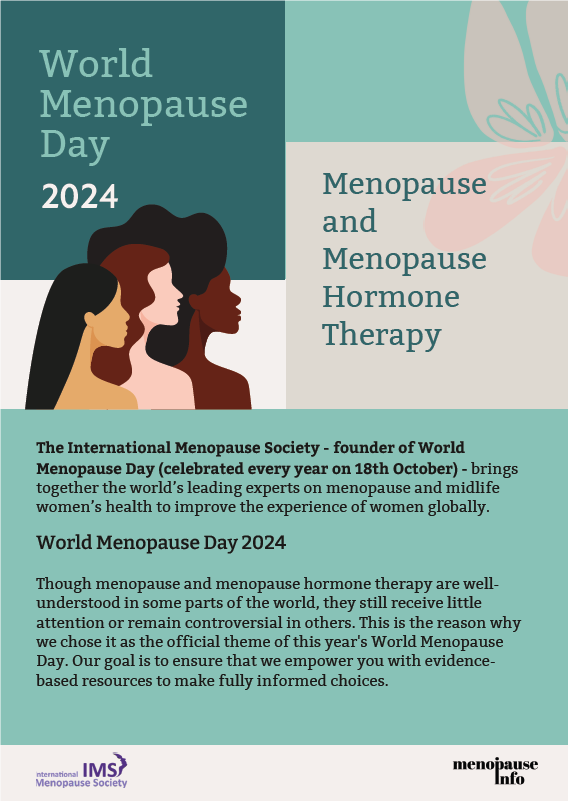
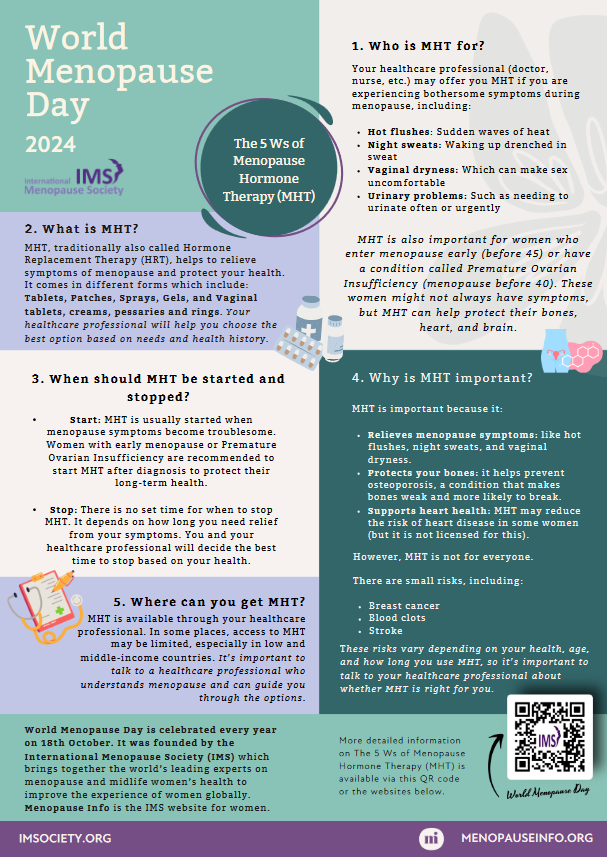 World Menopause Day 2024: Poster for Women – The 5 Ws of Menopause Hormone Therapy (MHT)
World Menopause Day 2024: Poster for Women – The 5 Ws of Menopause Hormone Therapy (MHT)
Sources
Where may I find the Sources quoted?
You may find the Sources quoted at:
Sources
- BMS Statement on Testosterone. 02 March 2023. British Menopause Society https://thebms.org.uk/2023/03/bms-statement-on-testosterone/ Accessed: 01 January 2025
- Glossary of Terms: Testosterone. Content Updated: February 2022. Australasian Menopause Society https://www.menopause.org.au/hp/information-sheets/381-glossary-of-terms Accessed: 01 January 2025
- Testosterone Replacement In Menopause: 2. What Is Its Role In Women? Publication Date: December 2022:1. British Menopause Society https://thebms.org.uk/publications/tools-for-clinicians/testosterone-replacement-in-menopause/ Accessed: 01 January 2025
- What Can Affect Your Sex Life? Sexual Desire (Libido). Last Updated: 18 December 2024 | Last Reviewed: 12 December 2023. Jean Hailes for Women’s Health https://www.jeanhailes.org.au/health-a-z/sex-sexual-health/what-can-affect-your-sex-life#sexual-desire-libido Accessed: 01 January 2025
- Looking After Yourself During Menopause: Sex and Relationships – Managing Low Libido: Testosterone Therapy. Last Updated: 20 September 2024 | Last Reviewed: 19 August 2022. Jean Hailes for Women’s Health https://www.jeanhailes.org.au/health-a-z/menopause/looking-after-yourself#sex-and-relationships Accessed: 01 January 2025
- What Is Hypoactive Sexual Desire Disorder (HSDD) In Women? What Causes It? International Society for Sexual Medicine https://www.issm.info/sexual-health-qa/what-is-hypoactive-sexual-desire-disorder-hsdd-in-women-what-causes-it? Accessed: 01 January 2025
- Testosterone and the Menopause: Testosterone Replacement In Women. 2022:1. European Menopause and Andropause Society https://emas-online.org/wp-content/uploads/2022/07/Testosterone-and-the-menopause.pdf Accessed: 01 January 2025
- Looking After Yourself During Menopause: Sex and Relationships – Managing Low Libido: Testosterone Therapy. Last Updated: 20 September 2024 | Last Reviewed: 19 August 2022. Jean Hailes for Women’s Health https://www.jeanhailes.org.au/health-a-z/menopause/looking-after-yourself#sex-and-relationships Accessed: 01 January 2025
- Testosterone for Women: Why Use Testosterone? Publication Date: February 2022:1. British Women’s Health Concern https://www.womens-health-concern.org/help-and-advice/factsheets/testosterone-for-women/ Accessed: 01 January 2025
- Davis, S. R., Taylor, S., Hemachandra, C., Magraith, K., Ebeling, P. R., Jane, F., and Islam, R. M. The 2023 Practitioner’s Toolkit for Managing Menopause: Definitions. Published Online: 01 December 2023 https://www.tandfonline.com/doi/full/10.1080/13697137.2023.2258783 Accessed: 01 January 2025
- Davis S. R., and Magraith, K. Advancing Menopause Care In Australia: Barriers and Opportunities: The Role of Testosterone. Published Online: 19 June 2023. https://www.mja.com.au/journal/2023/218/11/advancing-menopause-care-australia-barriers-and-opportunities Accessed: 01 January 2025
- BMS Statement on Testosterone. 26 July 2024. British Menopause Society https://thebms.org.uk/2024/07/bms-statement-on-testosterone-2/ Accessed: 01 January 2025
- Looking After Yourself During Menopause: Sex and Relationships – Managing Low Libido: Testosterone Therapy. Last Updated: 20 September 2024 | Last Reviewed: 19 August 2022. Jean Hailes for Women’s Health https://www.jeanhailes.org.au/health-a-z/menopause/looking-after-yourself#sex-and-relationships Accessed: 01 January 2025
- Hamoda, H., Mukherjee, A., Morris, E., Baldeweg, S. E., Jayasena, C. N., Briggs, P., Moger, S. Joint Position Statement By the British Menopause Society, Royal College of Obstetricians and Gynaecologists and Society for Endocrinology on Best Practice Recommendations for the Care of Women Experiencing the Menopause. First Published Online 10 June 2022:4. https://journals.sagepub.com/doi/full/10.1177/20533691221104879 Accessed: 01 January 2025
- Davis S. R., and Magraith, K. Advancing Menopause Care In Australia: Barriers and Opportunities: The Role of Testosterone. Published Online: 19 June 2023. https://www.mja.com.au/journal/2023/218/11/advancing-menopause-care-australia-barriers-and-opportunities Accessed: 01 January 2025
- Geddes, L. Prescribing of Testosterone for Middle-Aged Women ‘Out of Control. 05 July 2024. https://www.theguardian.com/society/article/2024/jul/05/prescribing-of-testosterone-for-middle-aged-women-out-of-control Accessed: 01 January 2025
- Looking After Yourself During Menopause: Sex and Relationships – Managing Low Libido: Testosterone Therapy – How Is Testosterone Used? Last Updated: 20 September 2024 | Last Reviewed: 19 August 2022. Jean Hailes for Women’s Health https://www.jeanhailes.org.au/health-a-z/menopause/looking-after-yourself#sex-and-relationships Accessed: 01 January 2025







